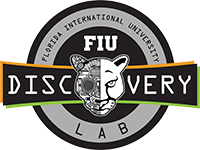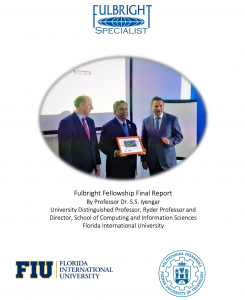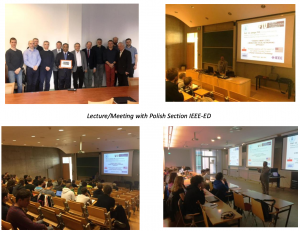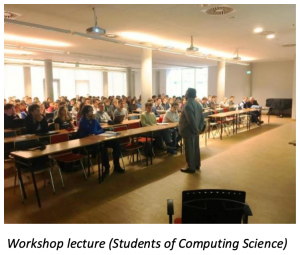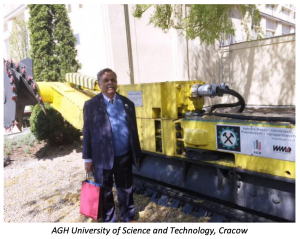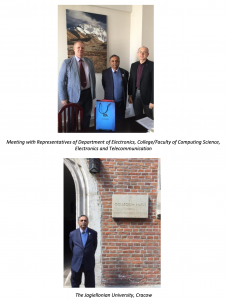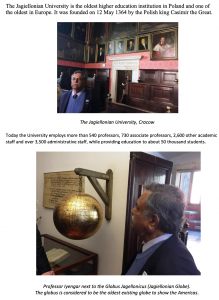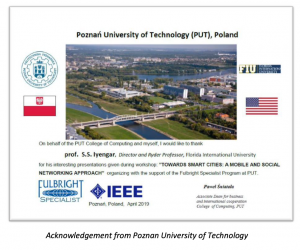Florida International University’s Knight Foundation School of Computing and Information Sciences was recently awarded a $2.25 million grant over five years in digital forensics research by the Army Research Office and US Army Development Command. The research grant was awarded to establish a Center of Excellence in digital forensics at FIU in collaboration with HBCUs.
The “Forensic Investigations Network in Digital Sciences (FINDS) Center of Excellence” was designed to develop advanced digital forensic systems for use by the Department of Defense and Department of Justice by connecting HBCU research across the country. The FINDS Center represents a collaboration among three HBCUs; Florida Agricultural and Mechanical University (FAMU), Grambling State University, and Jackson State University with Florida International University as the Center’s lead Institution.
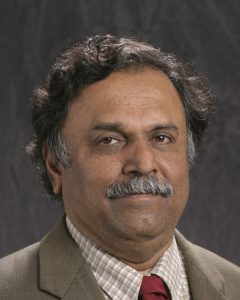
Dr. S S Iyengar, Distinguished University Professor and Director of FINDS Center of Excellence at FIU
The FINDS Center will be led by Distinguished University Professor Dr. S. S. “Ram” Iyengar who is the Principal Investigator / Director for this Center of Excellence in Digital Forensics research that will also provide a workforce development pathway for digital forensics professionals to enter the Department of Defense and other governmental departments and agencies. Dr. Cliff Wang who is the Chief of Network Sciences and Program Manager for Information Assurance at Army Research Laboratories said, “It is a highly competitive selection since only fewer than 8% of the submitted proposals were selected.” Prof. Ram Iyengar who is the Director of this grant said, “We expect to train more than 100 students, including graduate and undergraduate students from FIU and our collaborating universities.”
The FINDS Center will focus on research in five digital forensic theme areas—Analytical Methods and Evidence Processing Techniques; Forensic Fusion Models for Extracting Event Signatures; Big Data Digital Forensics; Drone Forensics and Ubiquitous Forensic Signatures. Each of these areas will be led by a lead Investigator from one of the universities with collaborations from researchers from business, industry, and government research laboratories, and members of the other collaborating universities.
Dr. Jason Liu, Interim Director of the Knight Foundation School of Computing and Information Sciences, commented that Digital Forensics was one of the emerging areas which led to the recent investment by the Knight Foundation in the School and the subsequent renaming. “Our capacity to produce top-notch graduates in professional fields such as Cybersecurity and Digital Forensics, as well as Computer Science and Information Technology, will contribute significantly to South Florida’s growth as a digital technology hub. The Center will be an excellent addition to FIU and our School and contributes to the Knight Foundation’s vision for South Florida.”
The FINDS Center complements FIU’s Global Forensic and Justice Center Preeminent Program which brings together four programs that establish FIU’s deep expertise in forensic science, forensic services and justice administration. Several highly renowned University entities comprise the preeminent program, including the International Forensics Research Institute, the Center for the Administration of Justice, the Center for Advanced Research and Forensic Science, and the National Forensic Science Technology Center@FIU. Dr. José Almirall, Director of the FIU Center for Advanced Research and Forensic Science and Mr. Kevin Lothridge Executive Director of the National Forensic Science Technology Center@FIU are both Co-PIs on the new grant.

Picture Courtesy: Google Images
“Establishment of the FINDS Center will really round out FIU’s forensic science expertise,” said Iyengar. “We are very proud and thankful to have Dr. Almirall and Mr. Lothridge as a part of our Center, as their subject matter expertise will contribute significantly to our multidisciplinary research and our ability to support the U.S. Army through the U.S. Army Research Office,” he continued. “In addition, we have a strong supporting cast of faculty members within the School of Computing who will make the Center a success.”
“The FIU Digital Forensics Research Center will create a novel analytical cyber forensics framework and develop leading edge technologies to address several hard research problems such as video authenticity and network forensics with comprehensive approaches,” said Dr. Cliff Wang, Program Manager, Army Research Office, an element of the U.S. Army Combat Capabilities Development Command’s Army Research Laboratory. “The proposed research will definitely advance the state of art in digital forensics fields and bring out new capabilities of which the U.S. Army can take advantage.”
The award is the result of a highly competitive merit competition administered by the Army Research Office under policy and guidance of the Office of the Under Secretary of Defense for Research and Engineering (OUSD(R&E)), to increase the capabilities of HBCUs to perform defense research. The Army Research Office is an element of the U.S. Army Combat Capabilities Development Command’s Army Research Laboratory.
